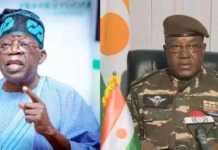It is clear that the call for a national conference in Nigeria is in reality a demand for renegotiating the best ways we can promote federalism and grassroots democracy in the country. Although we have had many constitutions in our short post independence history, there is an overwhelming concern that we as a people have not had much of a say in the process. Creating a forum for political negotiations would certainly not solve all our problems. It would however give us the sense that we matter as citizens and that we can commence repairing the damage that has been done to our body politic. Indeed, as Jega once suggested, the national conference can be participatory constitutional conference in which people feel genuinely represented.
In fact, in my view, the best way to do this is to have a constitutional conference, not the Abacha kind of constitutional conference but a constitutional conference that is based on the constituencies and people who are elected specifically to go and participate in this process of a constitutional review. Anybody who wants to participate in a constitutional review must be somebody that has the mandate of constituencies. What I am suggesting is that one, instead of a partisan constitutional review process as was introduced by the Olusegun obasanjo regime, what is needed to be done is to set up a review committee that can produce and circulate the present draft to all Nigerians so that people can have access to it and they can collate on the existing constitution.
In other words, the form of conference we need, need not take the form of a sovereign national conference as has been the experience in Francophone Africa. The transition to constitutional rule that occurred under General Abubakar and the election of the executive and legislature has made the argument for a sovereign national conference less tenable. Much as the elected political class lacks legitimacy and has not lived up to its expectations, the concern is that we cannot build democracy without respect for the rule of law. The political institution of the 4th Republic would need to be reformed through legal and constitutional means.
The other problem in the Nigerian debate is that the most vociferous callers for a sovereign national conference are calling for ethnic representation in the composition of the conference. That is a problematic position. Nigerian political communities at the national, zonal, state and district levels are for the most part multi-ethnic categories- cutting ethnic groups into different territorial-political communities. Due to our recent history of state terrorism and ethno-regional exclusion in Nigeria, ethnic tensions are very high at this point in time especially at the local level. Be that as it may, our most fundamental problems- corruption, repression and the negation of popular democratic aspirations cut across ethnic lines. The way forward is constitutional and institutional reform. It is difficult, it will take time and it does not have a magic formula but it is the only way for the moment. For many of us who demanded for a sovereign national conference for a long time, we cannot but agree with me that a sovereign national conference may not be the appropriate forum for this dialogue. I have long advocated the SNC but I think that its advocates must take on board some of the objections of the opponents of the SNC. The fear of elected office holders that there cannot be two sovereigns in the country must be taken into account. We need not insist on a dialogue taking the form of ‘sovereign’ conference, as long as its result will not be altered by anybody.
The way forward is the creation of opportunities to talk seriously, to engage in dialogue and to have the results of the dialogue reflected in the restructuring of our polity. In a certain sense, when Nigerians call for a national conference, they are making a call for an alternative approach to politics which would involve rehabilitation of the concept of politics and of democracy. Unfortunately, the reality of Nigerian politics is understood to be a process of thuggery, violence, political exclusion, ethnic jingoism, religious bigotry, electoral fraud and these all have collectively given birth to the terrorism we are all nursing today. Very few people benefit from such form of politics. Nigerians are seeking for a more noble conception of politics. Bernard Cricks was right when he said, “that there is an alternative conception of politics as a great and civilizing activity”. That politics could be practiced in a way whereby different interests within a given unit of rule are conciliated by giving them a share in power proportionate to their importance and welfare and survival of the whole community.
The national conference could be a workshop for promoting this alternative conception of politics. In seeking for this platform, Nigerian democrats and citizens should have this alternative conception of politics as their central objective.
The writer tweets @yung_silky




